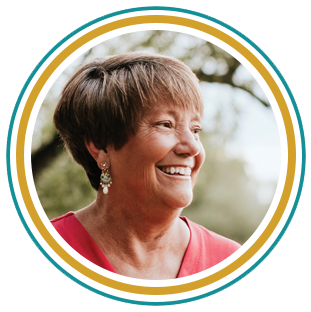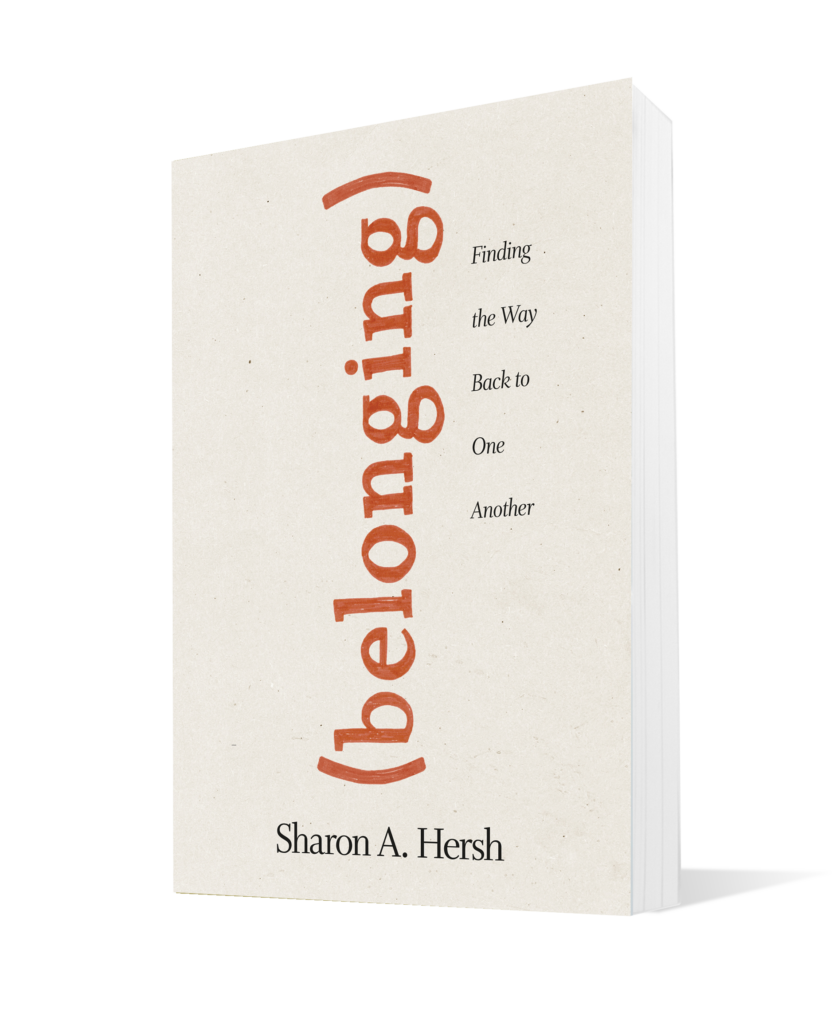It was an ordinary Friday night after small group at church. Everyone sprawled across the tables at Starbucks with their Frappuccinos and cold-brew lattes. Then one of the men in our group, Jake, tripped a political land mine:
Enter the Difficult Conversation
“I just don’t understand how you can be a Christian and not support our president. I mean this wall he wants to build is to protect us. How can anyone be against that? And the Democrats are idiots for delaying the process—causing a government shutdown.”
Jake seemed to be looking for a debate. I wondered if maybe he was hoping for a real dialogue—wanting to be seen, to be heard, to feel a sense of belonging. I knew he’d never admit it.
“Well, the Bible doesn’t share your perspective,” Haley, another participant in our small group, quickly offered. “Jesus has always been welcoming to immigrants and outcasts. I don’t see how you can be a Christian and be for a wall that keeps people out.”
Jake met Haley’s jab with one of his own, “That’s incredibly naive, Haley. Do you know the statistics about the destructive behaviors coming through the border and how they affect us—our crime rates, taxes, and illegal-drug issues? This isn’t even about being ‘Christian.’ Try thinking and being intelligent instead of just spouting the latest nonsense from NPR.”
Haley was stunned a little by the personal attack, but she couldn’t stop. She’s like the rest of us. Over 75 percent of social-media interaction is generated by well-meaning people who take their passionate opinions into relationally violent conversations.
“Jake, I care that families are separated. I care that Evangelical Christians are failing their call to love and to be healers and compassionate caregivers to the poor and invisible. It is too bad marginalized people don’t benefit from your passion. That offends me!”
Some in our small group nodded. Others, like me, remained frozen, looking into their coffee cups. Most wandered into different conversations. Jake walked out.
Our time has been called the ‘age of loneliness.’
It’s estimated that one in five Americans suffers from persistent loneliness.” Our stories of being created by Love and for love are lost in translation in our unhealthy relational patterns with one another. As Diane Kalen-Sukra notes, “Incivility is the social equivalent of CO2 and leads to a sort of cultural climate change that is very difficult to reverse. Anger, confusion, and a willingness to engage in bullying to get one’s way; these are all results of the current hot house climate we find ourselves in.” How can we change the climate—or the story—so we are connected to the deeper story of love the Grand Storyteller of our lives wants us to tell?
I thought about the conversation I heard after small group in Starbucks and easily identified Jake as someone who needs to change. He needs to get in touch with why he tripped a land mine to begin with and why he couldn’t hang in there to see a resolution in the conversation. I decided (without asking him) that he probably has unresolved trauma and needs to see a good therapist to learn about emotional intelligence.
I also thought it would be good for Haley to change. She talked about compassion and care but did not demonstrate it when she lashed out at Jake. I quickly decided (without talking to her) that Haley is probably part of the self-righteous in the church who offend so many and keep those Millennials and members of Generation Z from identifying with a church. She needs to repent and spend some of her healing grace on Jake.
But during my reflections on the horrible conversation after small group, I started to feel the tremors of an earthquake.
Why didn’t I say something to turn the conversation?
Why didn’t I ask Jake why this topic was important to him? Where was my compassionate insight or empathetic gesture? Why didn’t I ask Haley why she was personally offended?
Could I admit the truth?
In allowing personal offense or fear to keep me out of the conversation, I had forgotten my own story, and I had lost the opportunity to connect our collective stories to God’s story and facilitate an environment of grace.
The High Cost of Being Personally Offended
Many of us are deeply offended by political and philosophical realities in our world. We are concerned about people’s perceptions. We are deeply concerned about people’s sinful choices. We are personally offended by people’s words and actions. Relational violence grows out of personal offense and is a wound on society and individuals.
In allowing personal offense or fear to keep me out of the conversation, I had forgotten my own story, and I had lost the opportunity to connect our collective stories to God’s story and facilitate an environment of grace.
Tweet
Being personally offended comes with a high cost. I have friends whose son died from AIDS, and they were left alone because their church community didn’t know how to respond. I walked alongside a client whose husband walked into her hospital room shortly after the birth of their first child and announced he was leaving her for another woman because he was offended by his wife’s beliefs. One woman in my recovery group sat in silence for weeks before she dared ask the question burned into her heart by careless comments from religious people: “Do you think I’m going to hell because I’m addicted to heroin?” A thirteen-year-old girl recently confessed to me she had no one to sit with at lunch because she supported our president and was on the unpopular side of the line drawn in her middle school.
What does it mean when we are personally offended?
We believe someone else’s beliefs, actions, or affiliations have violated our rightness. More than just saying someone is wrong, being personally offended reveals we believe someone has wronged us and needs to give an account to us because we are the judge.
I am convicted by the words of the Trinity in The Shack when they describe the process of letting go of personal offenses:
Life takes a bit of time and a lot of relationship.
Papa (God the Father)
The Truth shall set you free and the Truth has a name. . . . Everything is about him. And freedom is a process that happens inside a relationship with him. Then all that stuff [personal offenses] churnin’ around inside will start to work its way out.
Papa (God the Father)
When all you can see is your pain, perhaps then you lose sight of [Truth].
Papa (God the Father)
You must give up your right to decide what is good and evil on your own terms. That is a hard pill to swallow—choosing to live only in me. To do that, you must know me enough to trust me and learn to rest in my inherent goodness.
Sarayu (Holy Spirit)
. . . I don’t want to be first among a list of values; I want to be at the center of everything. When I live in you, then together we can live through everything that happens to you. Rather than the top of a pyramid, I want to be the center of a mobile, where everything in your life—your friends, family, occupation, thoughts, activities[, conversations]—is connected to me but moves with the wind, in and out and back and forth, in an incredible dance of being.
Jesus
Begin Againers
We sat in Starbucks again, months after the sparring match between Jake and Haley. I spent the weeks in between these meetings thinking about my part in the conversation, beginning every morning and every evening meditating on the words of the Old Testament prophet Isaiah: “Don’t panic. I’m with you. There’s no need to fear for I’m your God. I’ll give you strength. I’ll help you. I’ll hold you steady, keep a firm grip on you” (Isaiah 41:10). I also thought of the courageous declaration of three friends who stepped out of the trap of fear and engaged in a dangerous conversation long ago:
Shadrach, Meshach and Abednego told the difficult king, “We do not need to defend ourselves before you in this matter. If we are thrown into the blazing furnace, the God we serve is able to deliver us from it…but even if he does not, we trust and know his love for us and will not trade our relationship with him for all the gold in your small kingdom.”
Daniel 3:16-18, author’s paraphrase
I could feel God’s steady grip on me and was ready for the furnace.
Haley started things off for this second go-around: “So, Jake, how are you feeling about our president now with the mess—the humanitarian crisis—we have at the border?”
Jake looked up from his cold-brew latte, and I caught his eye and entered the fray. “Jake, I’ve been thinking about the last time this subject came up. Where did you go when you left Starbucks?”
Jake looked surprised and a little embarrassed, but answered anyway. “I went to the bar. I guess I had enough fighting for one day.”
“What do you mean?” I followed his story line.
“My wife and I are thinking about separating. That night she called me an arrogant jerk before I left for small group. When we all got together for coffee, I was still thinking about her words. I guess I just went ahead and proved she was right. I acted like a jerk. Haley, I’m sorry.”
Haley stayed in the story and proved she wasn’t as self-righteous as I judged her to be. “Jake, I’m sorry. Do you think we could all pray for you and your marriage?”
No fight. No furnace. We sat in Starbucks together—a group of raggedy hearts with and for one another. We belonged.
The twist in the conversation reminded me of an evening of babysitting years ago. The three children I was watching wanted to play a different version of hide-and-seek. In this version, everyone hides together while one person looks for the hidden. The seeker in our game was four-year-old Charlie. The rest of us hid in a discarded wardrobe dresser in a dark corner of the basement. We were crammed together, giggling and whispering, “Shhh” as Charlie came down the stairs.
We heard his voice grow louder with each step down into the dark basement.
“I not afraid. I not afraid.”
We froze in the wardrobe as Charlie got closer. The minute he started to open the door, we all jumped out and yelled, “Surprise!” And Charlie collapsed between us, exclaiming, “Everything I was looking for is right here!”
Charlie experienced common grace (in an uncommon way). What if everything we are looking for is in every interaction? Even with difficult people? Even if we are the difficult people? Without personal offense or paralyzing fear, we can be the change in the conversation.
Sources
Brian A. Primack et al., “The Association Between Valence of Social Media Experience and Depressive Symptoms,” Depression and Anxiety 35, no. 8 (August 2018): 787.
Carolyn Gregoire, “Why Loneliness Is a Growing Public Health Concern—and What We Can Do about It,” Huffpost, March 21, 2015, https://www.huffpost.com/entry/science-loneliness_n_6864066.
Diane Kalen-Sukra, Save Your City: How Toxic Culture Kills Community & What to Do About It (Victoria, BC: Tellwell Talent, 2019), 46.
William P. Young, The Shack : A Novel (Newbury Park, CA: Windblown Media, 2007), 92.
Young, The Shack, 95.
Young, The Shack, 96.
Young, The Shack, 136.
Young, The Shack, 207.



